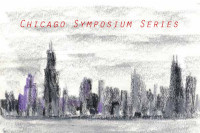University of Albany, State University of New York (SUNY)
At the federal and state levels, data from tests of student achievement are being used as measures of institutional and individual accountability. While the public favors monitoring accountability of its educational institutions, teachers, and professors, the fear that federal and state mandated test data will have an unfavorable influence on student learning is pervasive.
What happens to the quality of learning when K-12 teachers and higher-education professors teach to the test? Critics of externally mandated tests basing their criticisms on the tests being used, see only lowering of learning quality. Others argue that well designed tests improve instructional quality and consequently student achievement.
Both sides of this controversy will be examined with an emphasis on the attributes of well designed assessments of science and mathematics and how the design of such assessments and analysis of data from them can have a positive influence on student achievement.
Audrey B. Champagne is a Professor in the Department of Educational Theory and Practice in the School of Education and a Professor in the Department of Chemistry in the College of Arts and Sciences at the University at Albany, State University of New York (SUNY). She is co-principal investigator of a National Science Foundation funded Local Systemic Initiative titled Assessment in the Service of Learning.
Champagne is a fellow of the American Association for the Advancement of Science, and has served on the boards of the National Science Teachers Association and the National Association for Research in Science Teaching (NARST). She was President of NARST in 1997 and received the NARST Distinguished Researcher Award in 2002.
Champagne's activities in the assessment of science include serving on the National Assessment of Educational Progress (NAEP) Science Advisory Committee, the U.S. Committee for the Third International Mathematics and Science Study (TIMSS), and the Frameworks Panel for TIMSS 2003. She has been an advisor on the development of the test frameworks and items for the NAEP, TIMSS, and TIMSS-R Science, participated in setting the proficiency levels for NAEP Science, and was a member of the National Center for Education Statistics NAEP Validity Studies Committee.
Champagne was active in the development of the National Research Council of the National Academy of Science, and the Engineering and Medicine' s National Science Education Standards. She served as chair of the Assessment Working Group of the National Research Council's Committee on Science Education Standards and Assessment and was one of a team of five individuals responsible for drafting the final standards document.

